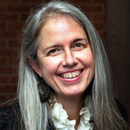Direction from the Bible for God’s will

Daily Scripture
2 Timothy 1:5-7, 3:10, 14-17
2 Timothy 1
5 I’m reminded of your authentic faith, which first lived in your grandmother Lois and your mother Eunice. I’m sure that this faith is also inside you. 6 Because of this, I’m reminding you to revive God’s gift that is in you through the laying on of my hands. 7 God didn’t give us a spirit that is timid but one that is powerful, loving, and self-controlled.
2 Timothy 3
10 But you have paid attention to my teaching, conduct, purpose, faithfulness, patience, love, and endurance….
14 But you must continue with the things you have learned and found convincing. You know who taught you. 15 Since childhood you have known the holy scriptures that help you to be wise in a way that leads to salvation through faith that is in Christ Jesus. 16 Every scripture is inspired by God and is useful for teaching, for showing mistakes, for correcting, and for training character, 17 so that the person who belongs to God can be equipped to do everything that is good.
Daily Reflection & Prayer
The apostle Paul told his young friend Timothy that the Bible (in his day, mainly the Hebrew scriptures—”Old Testament”) was a key tool for learning God’s will. Those writings were useful, he said, “for teaching, for showing mistakes, for correcting, and for training character, so that the person who belongs to God can be equipped to do everything that is good.” He did not suggest that the holy books would answer all of Timothy’s specific historical, scientific, relational or financial questions.
- Paul said the Bible is to “help you to be wise in a way that leads to salvation through faith that is in Christ Jesus.” In which of the ways Paul listed (“teaching, showing mistakes, correcting, and training character”) have you found the Bible to have the greatest saving impact on your life? In what ways do you want to apply the Bible’s principles more fully in your day-to-day living?
- Bible-reading appears to have been a life-long habit for Timothy, passed on by his devout mother and grandmother. Were there key people whose example and influence played the largest role in making you want to read the Bible? Are there factors that create for you a certain inner resistance to Bible reading? How do you process and deal with that resistance?
Prayer
Lord Jesus, I’m aware that I need all the things Paul said the Bible can do. I know, sadly, that many times I don’t want what I need. Keep drawing me to my Bible as a way to hear you speak to my heart. Amen.
GPS Insights

Dr. Amy Oden
Dr. Amy Oden is Professor of Early Church History and Spirituality, teaching at several seminaries. Teaching is her calling, and she looks forward to every day with students. Her latest book (Right Here, Right Now: The Practice of Christian Mindfulness, Abingdon Press, 2017) traces ancient mindfulness practice for Christians today.
I’m in a season now when I feel lost in a fog. One season of my life has ended with my husband’s death and a shift in my professional work. I want a clear path forward, preferably with a big neon sign from God telling me exactly what to do, where to live, how to shape my life. Yet over my lifetime it’s become more and more clear that’s not quite how God works.
To be honest, I’ve always been a bit put-off by talk about “God’s will.” It seems too often used by people in power to slap divine endorsement on whatever they want. But more than that, it seems to misrepresent who God is. It can convey the sense that God has some fixed script each of us are supposed to follow but God plays a game of “gotcha!” withholding it while we stumble in the dark trying to guess what it is and are punished for getting it wrong. Sounds like a cruel and manipulative god. As you can see, I’m put off.
This is where the Bible has really helped me, because the Bible does not reveal that kind of god or that notion of will. Instead, the Bible, from Genesis to Revelation, reveals “God’s will”–the Greek word thelema–as God’s dream, God’s desire for flourishing of all creation. Jesus calls it abundant life (John 10:10). Ah, now that resonates in my soul. This is the God who birthed the world through love.
For me, Scripture is a compass, not a map. It orients me to the cardinal directions by which I can find my way. It orients me toward abundant life. It is not a map that offers one-to-one correspondence of my life’s landscape. It doesn’t tell me: “take 20 steps, then turn right at the tree.” It does draw me toward God’s life-giving dream for my life and for the world.
As I’m learning to discern “God’s will” or “God’s deepest desire for me,” I’m learning to ask questions like:
What will bring life? What is life-giving in this situation?
How might God desire me/the world to flourish in this?
What seems to help me fulfill my deepest desires, live out of my true self?
What path helps me cultivate fruit of the Spirit such as kindness, patience, gentleness, love?
And there may be several faithful paths leading forward, not just one.
As I live more attuned to God’s own heart for the world, I’m not so worried about making the right decision to “be in God’s will.” Instead, I’m focusing my energies on learning to trust Jesus’ invitation: “I have come so that they may have life and have it abundantly” (John 10:10).
Today, what steps offer you a life-giving path?
